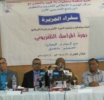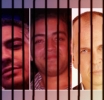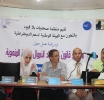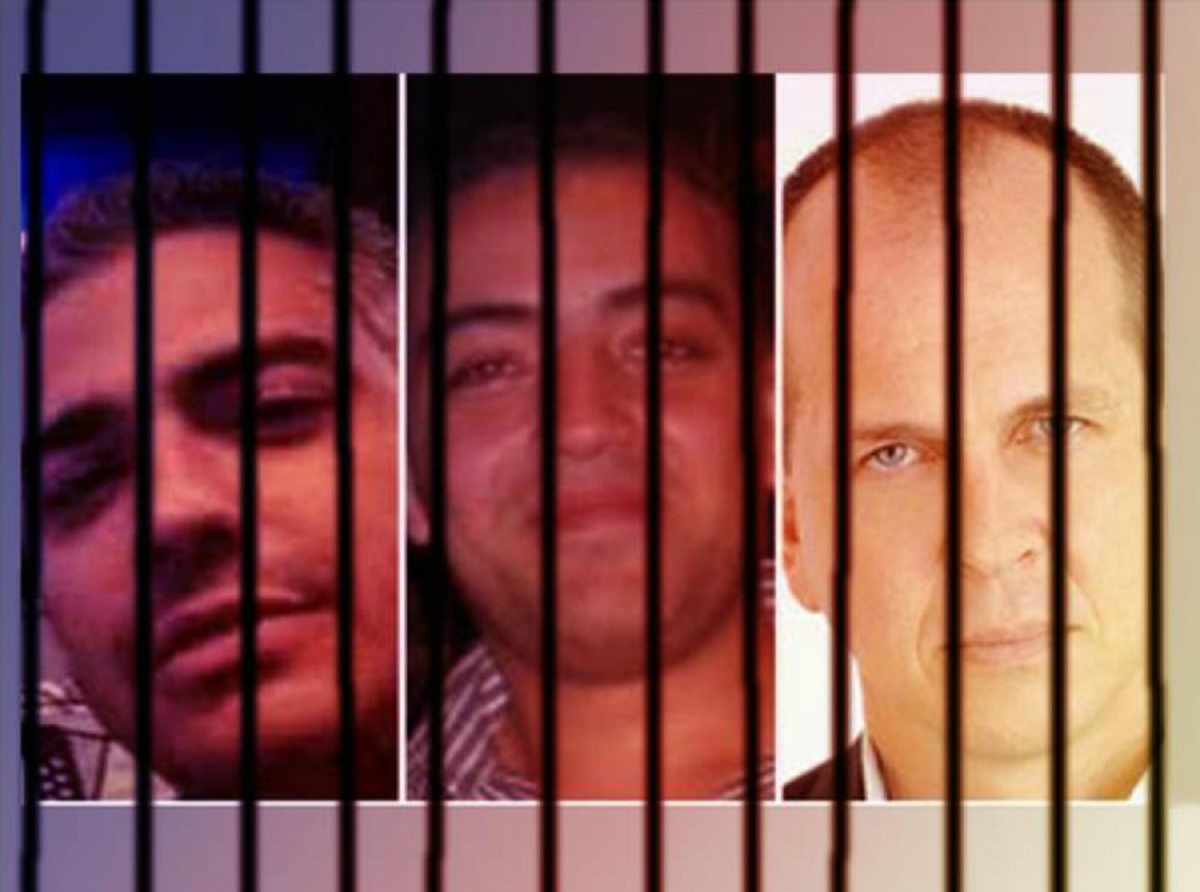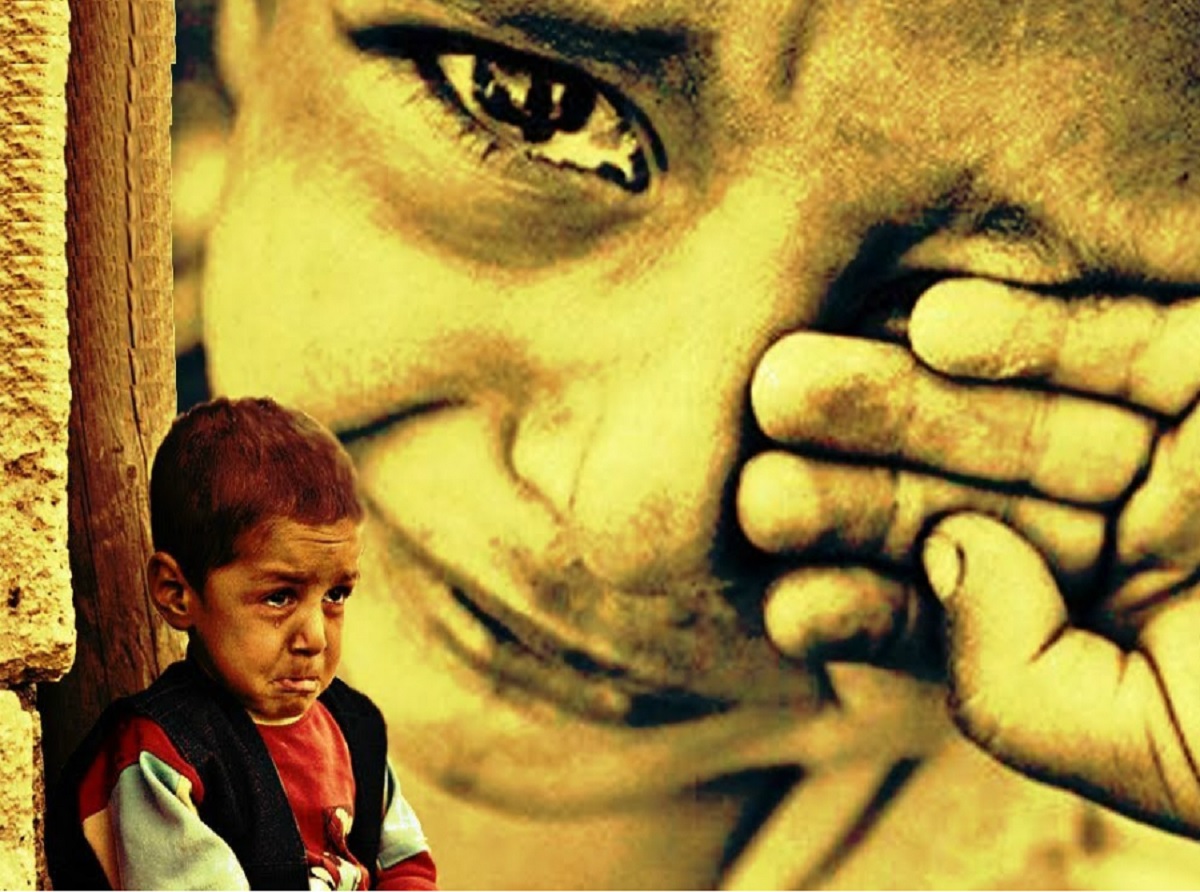
The coordinator of the Canadian Program for Development inYemenFaud al-Jawahri has said that civil society organizations are essential partnerswith the competent authorities in building up the community at all cultural, educational and medical levels.
During the launch of the annual program for women leaders on mechanisms of media mobilization and highlighting , which started on Saturday, Faud al-Jawahri called to cooperate between CSOs and the relevant authorities to provide services for the society as a whole.
He said that all public institutions should activate their roles to match the ambitions and goals which should be achieved by development programs and plans.
"People should access education , food and medicine" he added.
Head of the rights and freedom committee in the Yemeni Journalists Syndicate and Editor-in-Chief of al-Nida newspaper Sami Ghalibcalled to create an "alliance" between media outlets.
In an intervention on the importance of media in influencing and making public opinion, , Ghalib criticized the monopoly of media (TV channels, radios, news agencies) by the government,saying that the views and visions of opposition parties are not allowed to be broadcast in these media outlets.
" Party media is only represented in newspapers which many people can't access them particularly as the Yemeni society is distributed in more than 120,000 villages and localities and the rate of illiteracy is very high.
Ghalibspelt out that independent journalism is more balanced but they lack to human and financial resources. The government gives every newspaper YR5,000 a month.
He criticized the conditions required to obtain permits to create media outlets.
"While the public and party newspapers are funded by the government, independent newspapers are given 6,000 a year and this affects their performance and their coverage of women issues." he reiterated.
"There is no a newspaper which has a future vision for dealing with women issues and media only foster a negative image about women issues." he added.
Ghalib demanded to break the monopoly of media by the government in order to convey media mission particularly women issues to everywhere in Yemen.
He urged women to work seriously, pointing out that women organizations do not devote their efforts for women issues, and there is no a real assessment of reasons behind the failure of women during the last elections.
He gave an examples of what was published by al-Nida newspaper about the winning of a woman in the former local council elections, about issues of Somali refugees and pressures put by newspaper on the authorities to get a woman out of the prison in Ibb.
Ghalib also called various media outlets to respect Yemeni women and help them present their issues to all people.
Dr. Raoufah Hassan said, in an intervention entitled "Women and media: towards active presence of women issues and activities" that both men and women can't express their ideas and visions to media outlets briefly, so they need to be trained.
She called media outlets for creating a strategy to deal with women issues.
Hassan said that most organizations and public authorities have no programs for mobilization and highlighting on women issues, pointing out that they lack torequired resources.
The Coordinator of the National Authority for Defending Rights and Freedoms (Hood) Mohammed NajiAlaw said, in an intervention entitled "For the sake of active presence of women in civil society and its issues", that women are isolated and they only take part in women issues, calling for engaging women at all fields.
Alaw said that the participation of women increases when they become more educated and efficient, whether they are journalists or activists, emphasizing that women themselves do not adopt their issues or defend women rights, pointing out that no woman have visited Anisah al-Shuaibiwho was imprisoned at the Criminal Investigation Apparatus.
Alaw said that there are serious women activists, but they do not practically support women issues, calling women to put pressures on the authorities to allow bringing a lawyer or a male relative during investigating them in police stations, criminal investigations and prisons.
He pointed out that women are subjected to sexual harassments and rape, so they should accompany a relative or lawyer.
Alaw demanded to raise the case of blood money of women again, pointing out that women have achieved nothing since a symposium was held at this regard. He also called for creating nurseries for children of women if there are twenty women at any facility.
Chairman of Saba News Agency (Saba) NassarTahaMustaf said, in an intervention entitled " Responsibilities of media outlets are to ensure an active presence of women", that some people think that women have hadgreat gains and others say that they have had nothing so far.
He said that media outlets have made no active presence for women, but they were appointed as judges, and ambassadors, stressing that is necessary that the government political parties and civil society organizations adopt a strategic vision in order to enable media outlets to play clear-cut roles.
Mustafa affirmed that the government has a tend to amend laws, but it is not clear what media outlets should do. If an a vision was created, media outlets will know what they should do, so this will reflect a good image regarding the issue of women and their participation.
Mustafa said that businessmen do not support women, pointing out that media will stay ineffective and marginal if there is no a strategic vision, demanding to arrange a dialogue between the government, and parties and civil society organizations regarding women issues. He referred that the issue is general and that media outlets are a part of the issue.
ShafiqahMurshid, a journalist, demanded the political regime to improve the participation of women, affirming the importance of adopting a national strategy by the government, civil society organizations and political parties with the aim of supporting the issues of women.
Dr. Ahmed al-Kibsi criticized the Yemen Women Union, pointing out that it does not do well for the sake of women issues, demanding to denounce any acts which violate women rights.
Mohammed al-Sabri, a leader of the Joint Meeting Parties coalition, demanded to train cadres and raise awareness among different women leaders. He denied that there is a disagreement among JMP regarding the issues of women, pointing out that it is an issue of the community and laws, and that the ruling party has many potentials which may serve women issues, but it does not use them.
Bushra al-Bahloli, an activist, defended about religious scholars, urging to respect the opinions of others and pointing out that the media function is not the excitement, it is to tackle problems.
MunaSafwan, a journalist, demanded newspapers to give a space to women, indicating that the journalism should be a part of the dialogue and that they should contribute in the process of the dialogue, cover events and raise topics regarding women.
WaheebahSabarah said that media outlets are a two-edged sword, particularly visual media, demanding them to specify programs on women affairs. She said that women issues become seasonal, asking to engage women in dialogues.
EntisarSinan called to visit Anisah al-Suhaibi ( a woman which was subjected to sexual harassments and torture inside the Criminal Investigation Apparatus).
Dr. ShafeeqahSaeedcommented that media outlets don't not reserve enough space for women issues, emphasizing that women journalist themselves do not cover women issues.
She said that they fear of being defamed and insulted if they cover women issues. She demanded the Yemeni Journalists Syndicate to defend women and adopt their issues .
Sami Ghalibcommented that the government, political parties and civil society organizations are responsible for women, pointing out that there are confusionand uncertainty regarding women issues.
Chairwoman of WJWC Tawkol Karman said, in a speech delivered in the inauguration of the first annual program for women leaders on media mobilization and skills of highlighting , that men are present in public and political life and women are almost absent at all fields.
She referred that women are facing a lot of obstacles, pointing out that media outlets contributed in marginalizing women. In addition to social and cultural heritages which negatively affect women, there are no equal opportunities.
Karman signaled out that these skills will enable women to speak to media outlets, make interviews, hold press conferences, and contacting media outlets.
"This unprecedented program, which will continue for six months, will target women leaders in three Yemeni governorates; Sana'a, Aden and Taiz. We are betting that media outlets; TVs, radios, news agencies and newspapers, will play significant roles in implementing the goals of this program through allowing these women leaders to contribute.
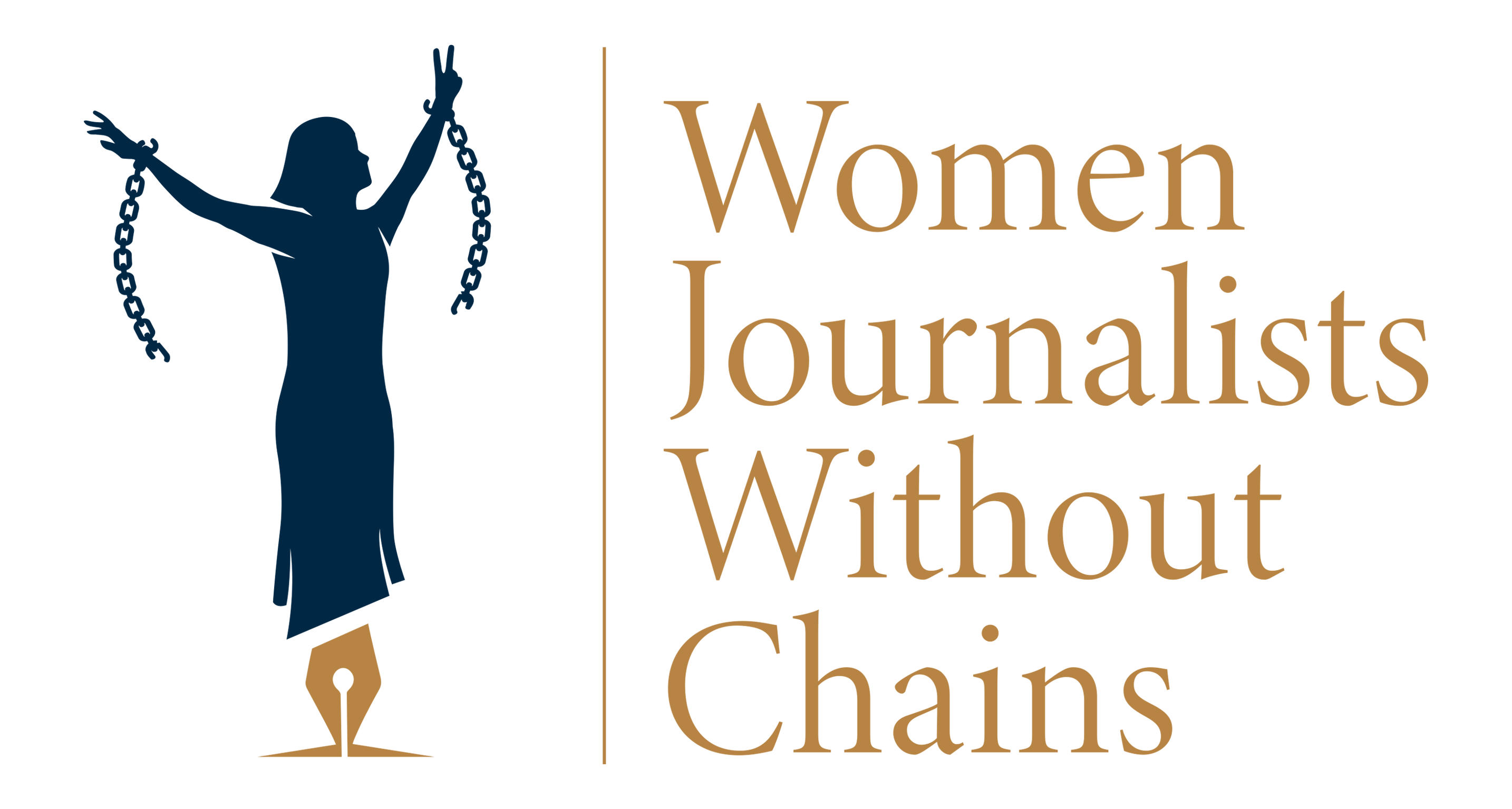
 En
En  Ar
Ar 